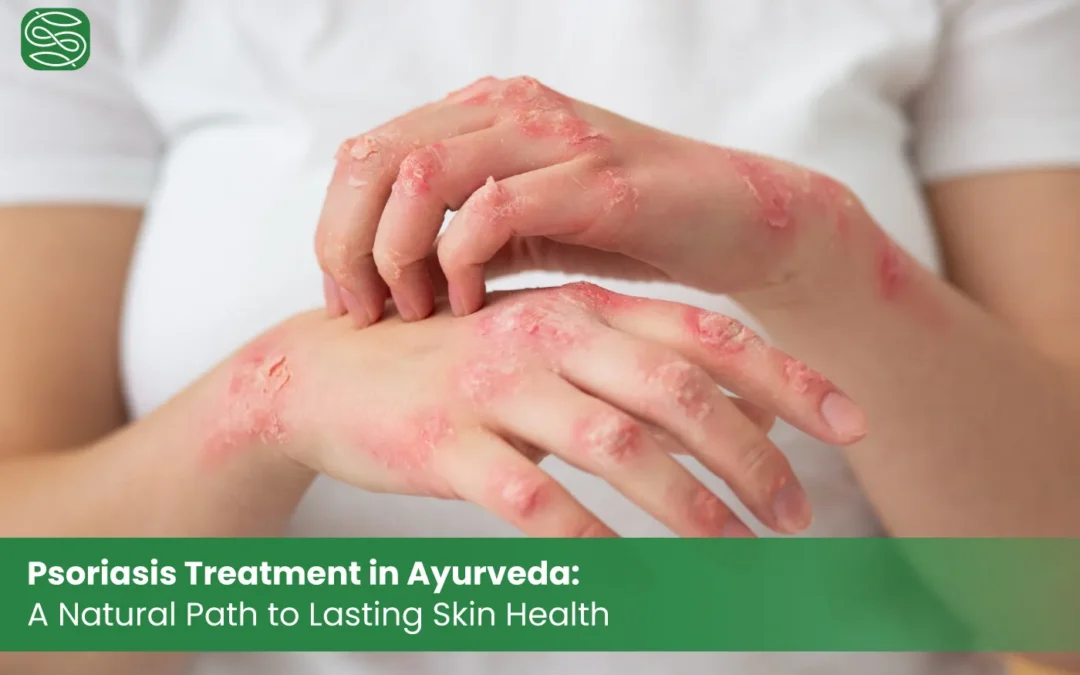Our skin tells a story, and often, it begins from within.
Understanding Psoriasis: More Than Just a Skin Condition
Root Causes:
Symptoms: What the Skin Reveals
Psoriasis Treatment in Ayurveda: A Holistic Approach
Process of Psoriasis Treatment in Ayurveda:
Long-term success in Psoriasis treatment in Ayurveda depends heavily on what you eat and how you live. Practitioners recommend eliminating incompatible food combinations, incorporating dosha-specific routines, and addressing mental health through meditation or counselling.
Ayurveda not only alleviates symptoms but also addresses the root causes of the issue. It encompasses purifying the body, strengthening the immune system, and attaining internal balance. Here is how it goes:
Balancing the Doshas
The treatment starts with diet and lifestyle changes to pacify the aggravated doshas. For instance, hot and spicy foods can aggravate Pitta, while grounding and moistening practices may be added to counteract Vata’s dominance.
Herbal Remedies
Specific proportions are preferred for these herbs: Neem, Turmeric, Guggulu, and Aloe Vera, which are known for their anti-inflammatory properties. Their anti-bacterial and detoxifying elements will support wound healing, reducing itchiness and promoting healthy and clear skin.
Detoxifying by Panchakarma
Panchakarma and other intermittent detox treatments are administered to remove Ama, the toxins built up in the body. They cleanse the blood, stimulate digestion, and eventually restore the immune reaction, all of which are preconditioning phases in the treatment of chronic skin conditions.
Diet and Lifestyle Changes
The most significant door to Ayurvedic psoriasis treatment, in the long run, is a healthy diet and lifestyle. The practitioners in the clinic recommend eliminating opposing food combinations from your meal plan, embracing dosha-specific daily routines, and employing meditation or counseling as practices to soothe the mind and aid general healing.

